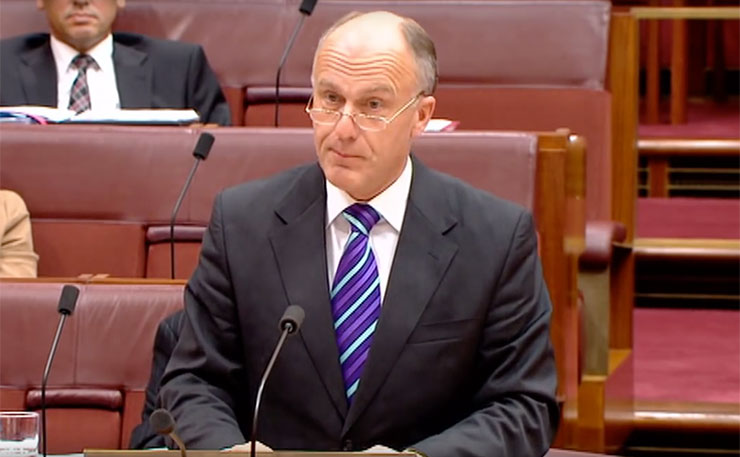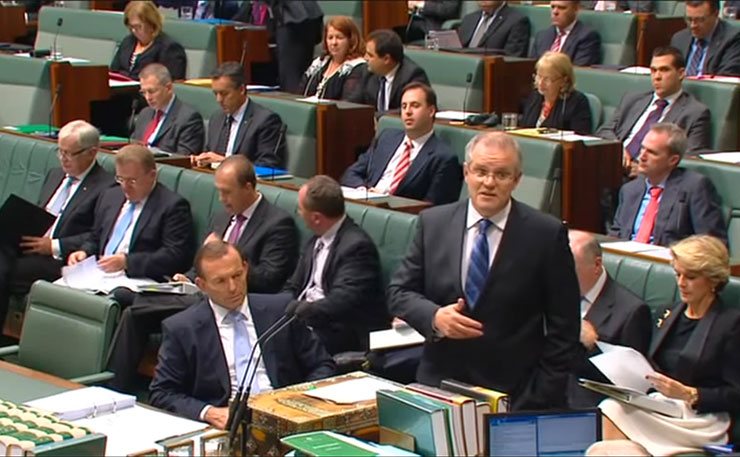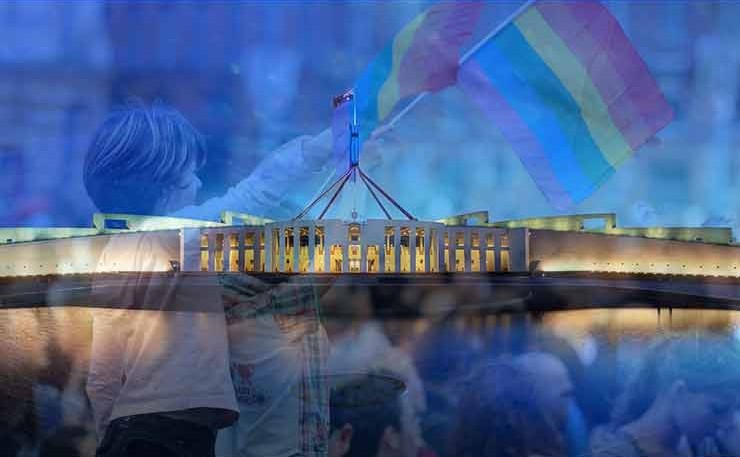In forging ahead with a bad-faith postal vote on same-sex marriage, the government has damaged one of the few implements that could have been deployed against a crisis that runs deeper than the Coalition’s leadership or the definition of marriage, writes Max Chalmers.
If there was ever any doubt about why the opponents of same-sex marriage wanted a plebiscite in the first place, it has been clarified this week.
Once a delay tactic, the triumph of a non-compulsory postal vote run by the Australian Bureau of Statistics – assuming it overcomes legal challenges – opens a path for the minority of Australians who oppose marriage equality to veil their position with democratic legitimacy, despite the long-running majority support for same-sex marriage in this country.
The postal vote will deliver an unrepresentative result, one that will almost certainly favour the same conservative voters who still take the time to mail handwritten homophobic letters to MPs and ABC newsreaders.
If we are calling this a poll then it’s one that’s premised on voter suppression. Even if supporters of same-sex marriage overcome their disadvantage, the unfitness of the ABS to run what the Coalition is selling as a genuine poll dashes any hope of an accurate representation of Australian opinion.
And then there’s the fact that, like the original plebiscite, this B-grade poll has no real power. Senior Coalition MPs like Eric Abetz have openly talked of ignoring the results – something all the more likely if a dodgy survey returns a narrow ‘Yes’ vote.

Since day one of the plebiscite debate, LGBTI groups have rightfully protested that such an exercise – even if carried out properly – would amount to a government-funded platform for attacks on their families, friends, and personal relationships. The first days of the campaign confirm that this will be the case.
But beyond this well-founded objection, the postal write-in will do an even broader harm.
In late 2016, researchers from ANU released a survey of their own. Based on interviews conducted a few weeks after the July election, they described the results as a “wake-up call”. Among the key findings: 40 per cent of respondents were not satisfied with democracy in Australia, “the lowest level since the 1970s,” according to the report’s summary.
That survey supports regular polling by the Lowy Institute, which over the past six years has consistently found around 40% of Australians do not believe democracy is preferable to any other form of government. For people aged 18-29, that number goes up to 48%.
The reasons for this are many and complicated. But the results are ultimately a reminder that beyond the day-to-day political tussles in Canberra, there is a crisis in our democracy that many are simply hoping will stay relatively benign, even as it is fed by expense scandals, broken promises, and the self-interested leadership biffs that have dominated federal politics since 2010.
This disillusionment gives the marriage equality postal survey a terrible irony. With the help of a little Coalition alchemy, what could have been an antidote has instead been brewed to poison.
Good faith efforts to resolve contested reform questions via the ballot box are exactly the kind of thing that could help restore faith between Australians and their government. In the US, ballot initiatives held as part of general elections have been a rare bright spot in recent years, allowing the community to force political action where parliaments have fallen behind popular will – or been held captive.
Local or national plebiscites with real power could be part of the mix needed to restore democratic faith in Australia, and would help do away with the absurd arguments that victory at a general election gives a government a “mandate” on every part of its platform.
We could debate and we could decide, and the people could see their influence clearly manifest. That’s not what we’re doing here, though.
More than a wasted opportunity, the postal survey is another demonstration that the mechanisms and means of a democracy are the play things of vested interests – in this case the Coalition MPs determined to hold the advance of LGBTI rights at any cost – rather than genuine tools of consultation. If you use these tools for anti-democratic means, you tarnish the instruments of democracy as well as the idea.
And of all the issues on which to run a bad-faith, non-binding, skewed opinion poll – one that may still be ignored by Abetz et al – it’s marriage equality, an issue especially popular among young Australians.
What is left for these people to see in politics other than the graveyard of their homeownership ambitions, the never-ending push to up their tuition fees, and the last-ditch attempts to salvage belief systems they thought were already dead?

To be fair to supporters of a plebiscite, a recent Newspoll did indicate it was more popular than a parliamentary vote. That, however, is likely a result of the lack of detail about the non-binding nature of a plebiscite included in the question. The poll also asked if people would rather have a plebiscite or “have politicians decide” – as a general rule, in a climate in which Canberra is held in such low regard, you’d expect that option to be pretty unpopular in any circumstance.
Imagine how much higher the number supporting a plebiscite would have been on any other issue, where the test of public opinion was not tainted by the cynical acts of self-interest that have brought this one into being. Imagine if the government had committed to other public votes alongside this one, in cases where it wasn’t simply trying to use the public – and risk the wellbeing of LGBTI Australians – to solve internal political problems.
The best case scenario from here is that young people manage to get themselves onto whichever list the ABS comes up with and vote together as a forceful show of solidarity to the LGBTI community and a major f-you to the Eric Abetzes of the world. There is still some chance this pitiful saga could have a happy ending.
Most likely, however, it will encourage the burgeoning belief that the methods and outcomes of Australian democracy are failing, and that those attempting to involve the public in the political process are wolves in sheep’s clothing.
Donate To New Matilda
New Matilda is a small, independent media outlet. We survive through reader contributions, and never losing a lawsuit. If you got something from this article, giving something back helps us to continue speaking truth to power. Every little bit counts.






